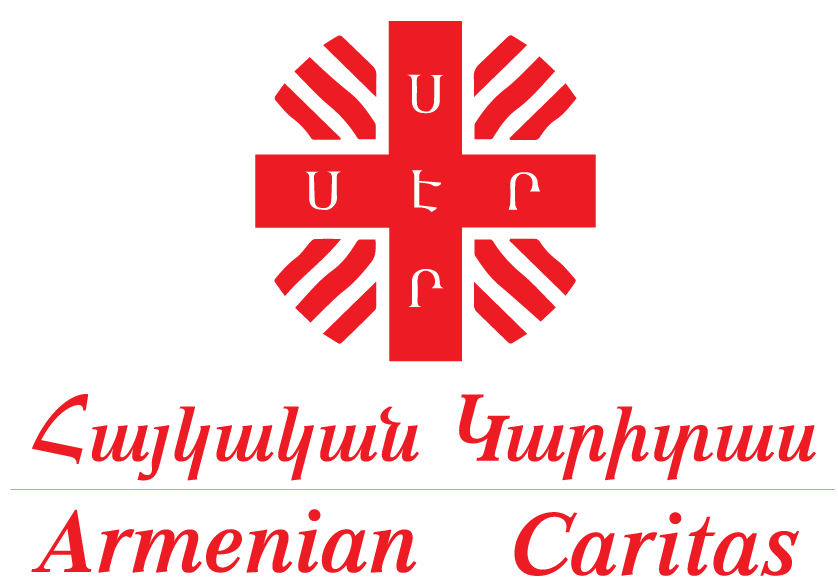- Context & background
Title of the project: Institutionalising a Volunteer First Responder Service in Armenia (VolFiRe)
Country / Location: Armenia / nationwide
Date of the Action: 01.12.2022 – 31.07.2026
The Civil Protection system in Armenia is currently mainly based on professional responders from governmental institutions. They are to a large extent on-duty firefighters and other paid staff of the Ministry of Emergency Situations (MES). But Armenia has numerous remote areas particularly affected by the limited coverage through the regional fire and rescue services. These areas are often out of reach if we consider international standards for rapid response to emergencies and disasters. The closest MES local fire brigades are established far from these municipalities, 20km to 45km, and access is often difficult (bad road conditions, mountainous roads…). In some cases, the emergency services cannot at all reach the municipalities due to snowfall in winter or landslides in spring. This fact also applies to ambulances and other medical services. Therefore, the Armenian population living in remote areas is extremely vulnerable in case of emergencies (accidents, medical emergencies, house fires…) and disasters (landslides, forest fires…).
Therefore, the Austrian Red Cross (AutRC) implemented the StrengthVOL project[1] from 2020 – 2022 (funded by DG ECHO and co-funded by the Austrian Development Agency). In the frame of this project the Ministry of Emergency Situations of Armenia (MES), Armenian Red Cross Society (ARCS) and Austrian Red Cross (AutRC) developed a comprehensive model for Civil Protection volunteering for Armenia. In this model, the volunteers are first responders, firefighters and rescuers called “Volunteer Fire Rescue Groups” (VFRGs). Volunteers pass an exam with MES and successful candidates receive from MES an official rescuer ID. VFRGs are alerted and deployed by the MES Crisis Management Centre (911) for any emergency or disaster occurring within the municipality. They are available 24/7 and should be deployed within 15 minutes after the alert. The groups are responsible for running the station, equipment and fire truck. They are alerted and deployed regularly. They are volunteer firefighters like in similar volunteer systems in many European countries, e.g., Austria.
Based on the lessons learned from the StrengthVOL project and its main recommendations, the following outputs have been defined for the current project “Institutionalising a Volunteer First Responder Service in Armenia (VolFiRe)”:
- Further development of the conceptual framework for Volunteer Fire Rescue Groups in Armenia (> Output 1)
- The model for Volunteer Fire Rescue Groups (VFRG) should be established as an integral part of the civil protection system of Armenia. (> Output 2)
- More Volunteer Fire Rescue Groups should be established, trained, activated, and well-supported countrywide. (> Output 3)
- Since MES capacities are also limited in case of large-scale disasters, the local Volunteer Fire Rescue Groups should be made deployable also for regional disaster response (> Output 4)
- Gender equality and disability inclusion are important aspects to be integrated into the Volunteer Fire Rescue Groups. (> Output 5)
Simplifying Operational Guidelines and Organizational Manual into an Easy-to-Read Format is going to be realised within Output 5 of the ADC (Austrian Development Cooperation)-financed consortium project of Armenian Red Cross Society (ARCS), Austrian Red Cross (AutRC), Armenian Caritas (AC) and Caritas Austria (CA). AutRC is the lead organisation of this project, Caritas is responsible for promoting Gender Equality and Disability Inclusion within the Volunteer Fire Rescue Groups in this project.
- Objective & Scope
This assignment aims to engage an expert to produce easy-to-read documents that are accessible to people with and without disabilities to review, simplify, and reformat the existing Operational Guideline and Organizational Manual for volunteers with and without disabilities of the VFRG groups to ensure they are easy to understand, visually appealing, and user-friendly.
The selected expert will :
- Review 2 documents / Operational Guidelines (15 pages) and Organizational Manual (18 pages) / and identify complex or technical sections.
- Simplify content to ensure clarity while maintaining accuracy and compliance.
- Use plain language and avoid overly technical terms.
- Design and organize content with the use of headings, subheadings, bullet points, tables, and infographics where appropriate.
- Integrate illustrations to enhance comprehension.
- Conduct consultations with relevant stakeholders to ensure content meets user needs.
- Prepare and submit a final draft for approval, incorporating feedback from the organisation.
- Duration and Schedule
The assignment must be completed within the 20th of January,2025 from the start date.
- Deliverables
A simplified and user-friendly version of the two documents :
- Operational Guidelines
- Organizational Manual.
- A visually engaging document with graphics, tables, and design elements.
- Editable source files (e.g., MS Word, Adobe InDesign).
- A summary document outlining the changes made and the rationale.
- Qualifications and Experience
The expert should possess:
- Proven experience in technical writing, editing, or document design.
- Strong skills in simplifying complex content into plain language.
- Expertise in document formatting and graphic design tools (e.g., MS Word, Adobe InDesign).
- A good understanding of Armenian language structure and skills in simplifying complex information, using plain Armenian language.
- Knowledge of accessibility standards and guidelines.
- Experience working with diverse groups and adapting content for various literacy levels and capacities.
- Proposal Submission
Interested candidates should submit a detailed proposal outlining their approach, relevant experience (portfolio showcasing previous work in creating Easy-to-Read materials or similar content), and a proposed budget. Proposals should be submitted by the 11th of December, 2024 to Gayane Norikyan: g.norikyan@caritas.am (in cc to Elisabeth Haun: Elisabeth.Haun@caritas.tirol)
- Timeline
- Deadline for proposal submission: 11th of December,2024
- Evaluation of proposals: 12th of December,2024
- Notification of selection: 13rd of December,2024
- Point of Contact
For inquiries or clarifications, please contact Gayane Norikyan at g.norikyan@caritas.am
